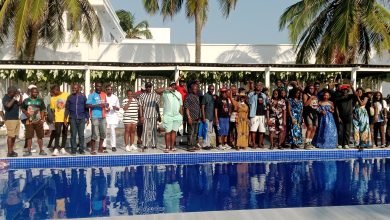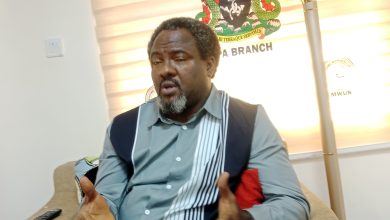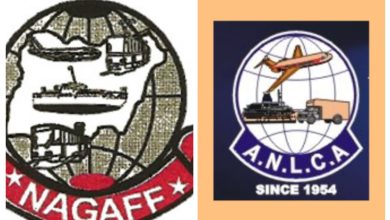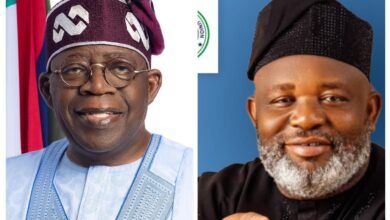NSML sues for capacity development to keep pace with evolving global regulations
NSML sues for capacity development to keep pace with evolving global regulations
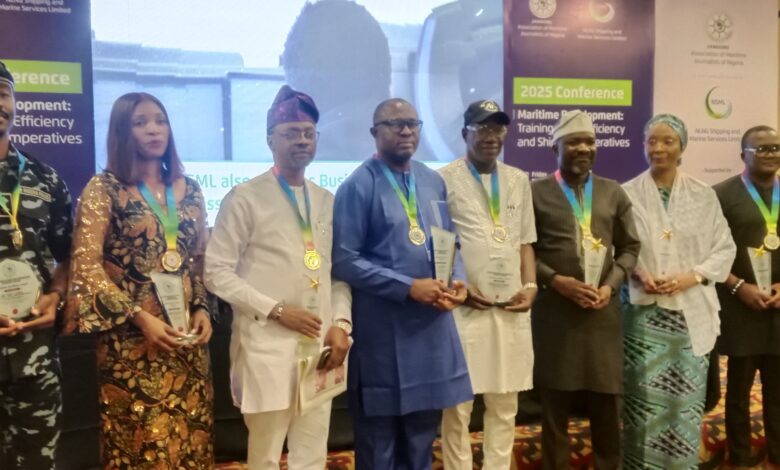
Segun Oladipupo
NLNG Shipping and Marine Services Limited (NSML) on Friday, called for urgent maritime training as and capacity development as tools to keep abreast of rapidly evolving global regulations that are reshaping the maritime industry
The Managing Director of NSML, Mr. Abdulkadir Ahmed made the call at the 2025 Annual Conference and Awards of the Association of Maritime Journalists of Nigeria (AMJON) that held in Lagos.
The theme of this year’s conference is ” Maritime Development: Training Ports Efficiency and Shipping Imperatives.
Represented at the event by Mutiu Olayiwola, Manager, Finance and Corporate Services, the Managing Director emphasised that as the maritime world contends with new realities from environmental regulations and digitalisation to emerging cybersecurity and crew welfare standards, investment in human capital is no longer optional but essential.
In his keynote presentation titled “The Evolving Global Maritime Regulatory Environment – The Role of Maritime Training and Capacity Development,” the NSML chief painted a broad picture of a sector in transition. He stated that global shipping is not just the lifeblood of trade but a dynamic ecosystem now confronting unprecedented regulatory shifts designed to address climate change, automation, and the rights of seafarers.
Mr. Ahmed highlighted critical regulations currently reshaping the maritime landscape. He pointed to the International Maritime Organization’s (IMO) environmental mandates, such as the 2020 Sulphur Cap, the Energy Efficiency Existing Ship Index (EEXI), and the Carbon Intensity Indicator (CII), as game changing policies. These frameworks, aimed at drastically cutting greenhouse gas emissions from vessels, have compelled shipowners and operators to adopt greener technologies and more energy efficient practices.
Also gaining momentum are regulatory frameworks for autonomous shipping and maritime cybersecurity. Two areas Ahmed noted are essential to the industry’s future resilience. He emphasized that with increased reliance on digital systems onboard, the threat landscape has broadened, requiring well-trained professionals capable of navigating both technical and cyber challenges.
The welfare of seafarers also featured prominently in his address. The NSML MD recalled the COVID-19 pandemic’s deep impact on maritime workers, many of whom were stranded at sea due to global travel restrictions. He welcomed recent amendments to the Maritime Labour Convention (MLC), which now emphasize seafarers’ rights to medical care, rest, and repatriation an area that, he said, must remain a priority.
Crucially, Mr. Ahmed argued that all these changes demand a workforce that is agile, educated, and globally competitive. He noted that without robust training and continuous capacity development, compliance, safety, and operational efficiency could be compromised, putting both lives and assets at risk.
He spotlighted NSML’s proactive approach to bridging the knowledge and skills gap. Through its Maritime Centre of Excellence (MCOE) in Bonny, Rivers State, NSML is delivering UK-accredited and STCW 2010 compliant training to Nigerian seafarers, enabling them to remain competitive globally. With over 200 cadets already trained and a substantial proportion absorbed directly into NSML’s operations, the centre is reducing Nigeria’s dependence on foreign certification and supporting the country’s broader maritime ambitions.
The MCOE, he said, also features one of Africa’s most advanced simulation systems, offering real-time training in bridge operations, engine room dynamics, cargo handling, and crisis response. According to him, this ensures not just compliance with international standards but also fosters confidence and competence among cadets and seasoned professionals alike.
Beyond training, Mr. Ahmed outlined NSML’s broader contribution to the maritime industry. These include its supervision of the construction of modern LPG vessels, strategic fleet renewal using dual-fuel, energy-efficient ships, and commitment to alternative fuels such as hydrogen and ammonia in alignment with IMO 2030 and 2050 targets.
He also noted the company’s industry recognition, strategic partnerships with NIMASA and global maritime institutions, and its support for initiatives like Nigeria’s ship registry reform and the Deep Blue Project, aimed at boosting maritime security.
Mr. Ahmed reminded stakeholders that while adapting to global regulations is a daunting task, it also presents a golden opportunity for innovation, sustainability, and economic empowerment. He reaffirmed NSML’s commitment to training the next generation of maritime professinals and urged go, private sector players, and the media to continue working together in building a stronger and more resilient maritime future for Nigeria and Africa at large.
He commended AMJON for its vital role in shaping public discourse and storytelling in the maritime space, noting that the narrative of a transformed maritime industry must be driven from within.




